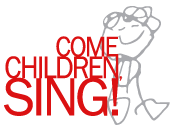There has been a lot of popular research reporting that music in early childhood will make a child smarter—enhance spatial reasoning, math skills and patterning, etc. Most of this research was paid for by the music industry and is not well respected within the music education research community. There is a lot of research from other sources indicating that students involved in music score higher on SAT tests and the like. Discounting all of this research, parents and teachers of children involved in music have for years touted that music develops discipline, the ability to focus, interest in learning, poise, self-confidence, and social skills, promoting achievement and keeping kids off the street.
Whatever your views, there are two compelling reasons for your child to be involved in music. First, early childhood is the most crucial time for music learning. It is important that your child be involved in music to learn music, whether or not it has any affect on spatial reasoning or math skills. This is the window of opportunity for your child’s music development, just as it is for language.
Second, today’s expectations seem to be that little children learn numbers, letters, colors, how to write their names, how to socialize, and how to tie their shoes before they reach kindergarten. Children’s cognitive development seems to have become the measure of good parenting. There is, however, another vast dimension of living, loving, and learning that is simply being a child. The life force exhibits its greatest brilliance in children. Learning is play. Creativity is life. Beauty is everywhere. Energy abounds. Joy is ever present. Cognitive development does not measure the wonder of the young child. Music feeds the wonder. It is play. It is creativity. It is beauty. It is energy. It is joy. Music nurtures the life force of the child, throughout life.
|

